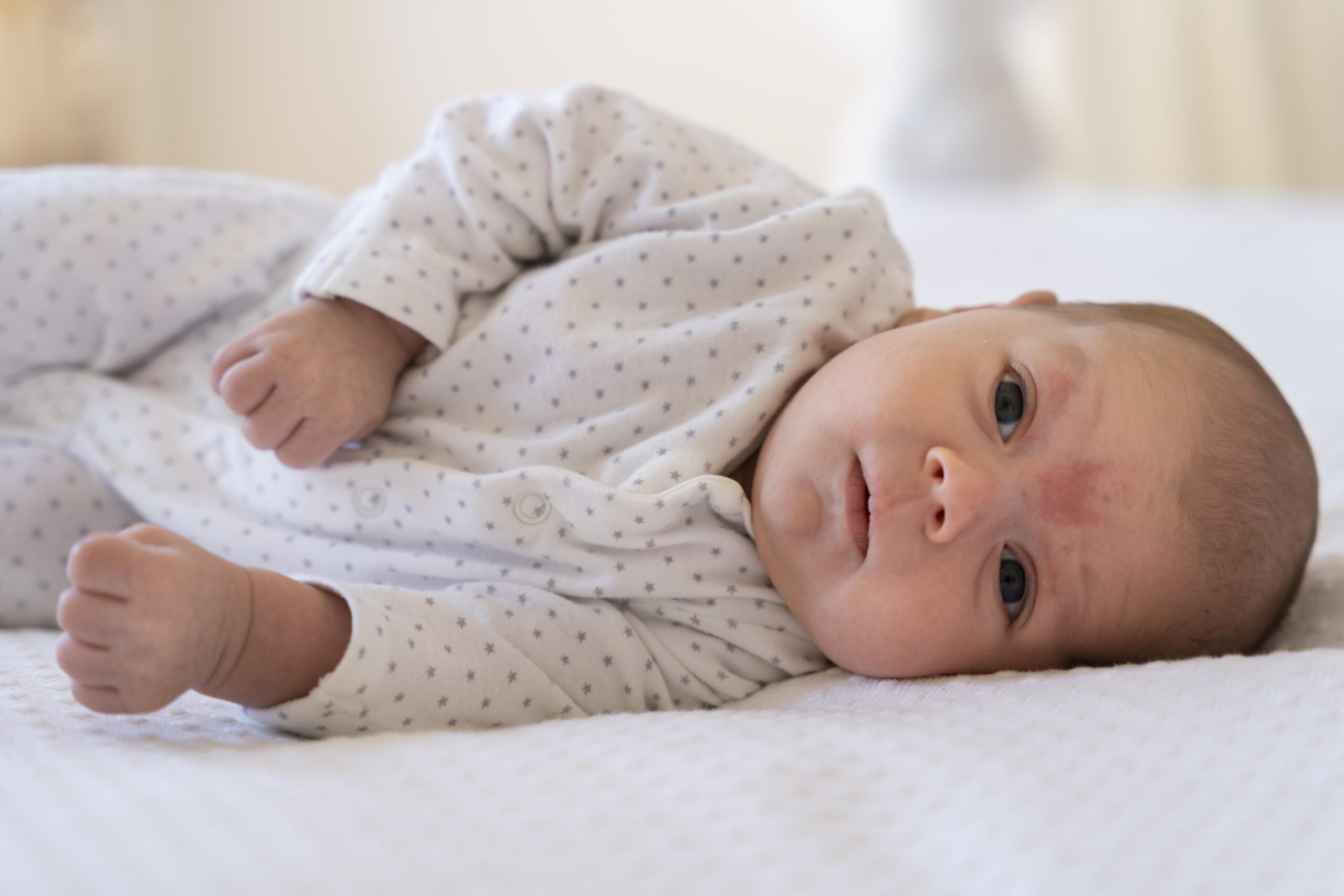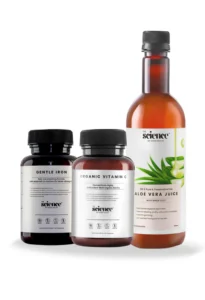When new parents notice small red or white bumps on their baby’s delicate skin, it often raises immediate concern. The good news is that baby acne is a very common and harmless skin condition. It affects many newborns within the first few weeks of life and almost always clears up naturally without leaving scars or causing discomfort.
Baby acne appears when a newborn’s sensitive skin adjusts to life outside the womb. Unlike teenage acne, it has nothing to do with poor hygiene or diet. Instead, it results from temporary hormonal changes and an immature oil gland system. Parents should know that this condition is temporary, painless, and usually needs no medical treatment.
This article will guide you through the causes, symptoms, duration, treatment tips, myths, and important times to consult a doctor. By the end, you’ll feel reassured and confident about caring for your baby’s skin naturally and gently.
What is Baby Acne?
Baby acne refers to small red or white bumps that appear on a newborn’s skin, usually on the cheeks, chin, and forehead. Some babies may develop it right after birth, while others show symptoms within two to four weeks. Around one in five newborns experience baby acne, making it a very common condition.
It is important to note that baby acne is not the same as infantile acne. Infantile acne appears later, usually after three months of age, and may last longer. Baby acne, on the other hand, is harmless, temporary, and typically fades away without leaving any trace. Parents often confuse the two, but in most cases, what newborns develop is the milder and short-lived baby acne.
Symptoms of Baby Acne
The symptoms of baby acne are usually easy to recognize for parents. Common signs include:
- Small red bumps or pimples, sometimes with white heads.
- Most noticeable on the cheeks, forehead, chin, and scalp.
- May occasionally spread to the chest or back.
- The skin may appear more irritated after crying, exposure to heat, or contact with rough fabrics.
- Usually appears within the first two to four weeks of life.
Unlike other skin conditions, baby acne does not cause itching, pain, or long-term damage. It is purely a cosmetic issue that resolves on its own.
What Causes Baby Acne?
Doctors believe that several factors may contribute to baby acne, though the exact cause is not always clear. The most common reasons include:
- Hormonal changes in the baby’s body due to hormones passed from the mother during pregnancy or breastfeeding.
- Overactive or immature oil glands producing excess sebum, which clogs pores and leads to small bumps.
- The newborn’s sensitive skin reacting to saliva, milk, or detergents on fabrics.
- General adjustment of the baby’s skin to the outside environment after birth.
All these factors make baby acne a temporary and harmless skin condition that does not require heavy medical treatment.
How Long Does Baby Acne Last?
The duration of baby acne can vary depending on the child, but most cases clear within a few weeks. Typically:
- Baby acne develops within the first month of life.
- It lasts anywhere from a few days to about four weeks.
- In some babies, mild cases may persist for a couple of months.
- Infantile acne, which is different, begins later (around three to six months old) and can last up to a year if not treated.
For parents, the key point is reassurance: baby acne almost always disappears naturally without leaving scars.
Safe Treatment and Home Care Tips
The best way to handle baby acne is to allow it to heal on its own while practicing gentle skincare. Parents can follow these safe and effective home care tips:
- Wash your baby’s face daily with lukewarm water.
- If needed, use a mild, fragrance-free baby cleanser once a day.
- Pat the skin dry gently with a soft towel instead of rubbing.
- Avoid oily lotions, creams, or powders that may clog pores.
- Clean milk, saliva, or food residue from your baby’s face promptly.
- Never pop, squeeze, or scrub the pimples as this may irritate the skin.
- Dress your baby in breathable, soft fabrics to avoid friction.
- Keep the baby’s environment cool and avoid overheating, which may worsen acne.
If you notice the condition worsening or lasting longer than usual, consult a pediatrician.
Myths and Facts About Baby Acne
There are many myths surrounding baby acne, which often worry parents unnecessarily. Here are some facts:
- Myth: Kissing your baby causes acne.
Fact: Kissing does not cause acne. Hormones and sensitive skin are the real reasons. - Myth: Baby acne means poor hygiene.
Fact: Baby acne is not related to cleanliness. It is a natural adjustment of the baby’s skin. - Myth: Strong medicines are needed.
Fact: Most cases resolve naturally and do not require treatment. - Myth: Baby acne will leave scars.
Fact: Scarring is extremely rare and usually occurs only if the pimples are picked or squeezed.
When to See a Doctor
Most cases of baby acne do not require medical attention. However, you should consult your pediatrician if:
- The acne lasts longer than one month without improvement.
- The bumps appear deep, swollen, or filled with pus.
- Your baby develops other symptoms such as fever, irritability, or spreading rashes.
- Acne appears for the first time after three months of age, as this may be infantile acne, which sometimes requires treatment.
Final Words for Parents
Baby acne may seem worrying when you first notice it, but it is one of the most common and harmless skin conditions in newborns. It requires no medical treatment, does not cause pain, and clears naturally with time. The best approach is gentle care, patience, and reassurance that your baby’s skin will heal on its own.
Your baby’s skin deserves gentle, natural healing, just like your own. If you want holistic, medicine-free solutions for long-term wellness, explore Smriti Kochar’s Ultra-Wellness Program today. Start your healing journey now for yourself and your family.
Bonus Recommendation for Skin Health
For parents who also want to support healthy and radiant skin for themselves, consider the Glowing Skin Bundle. This carefully designed supplement pack promotes skin glow and overall wellness naturally, making it a perfect addition to your self-care routine.
Frequently Asked Questions
Q1. Does breastfeeding cause baby acne?
Ans: Breastfeeding does not directly cause baby acne. However, maternal hormones passed during breastfeeding may contribute to its development. Despite this, breastfeeding remains highly beneficial and should never be stopped because of acne.
Q2. Can baby acne spread to the body?
Ans: Yes, while baby acne is most common on the face, it may occasionally spread to the chest, back, or scalp.
Q3. How can I soothe irritated baby skin naturally?
Ans: Keep the skin clean with lukewarm water, avoid harsh products, and gently pat dry. Natural healing is the best solution for baby acne.
Q4. Will baby acne return later in life?
Ans: No. Baby acne is temporary and unrelated to teenage acne or adult skin conditions.
Q5. Can baby acne cause scars?
Ans: Scarring from baby acne is very rare. It only happens if the pimples are forcefully squeezed or infected.
Q6. Should I apply creams or oils to baby acne?
Ans: Avoid heavy creams, oils, or powders, as they can clog pores and worsen the condition.
Q7. How long before baby acne clears up?
Ans: Most cases resolve naturally within two to four weeks. In some babies, mild cases may last up to three months
Q8. Is baby acne a sign of an allergy?
Ans: No, baby acne is not an allergic reaction. Allergies usually cause rashes that are itchy, red, and often accompanied by swelling.




